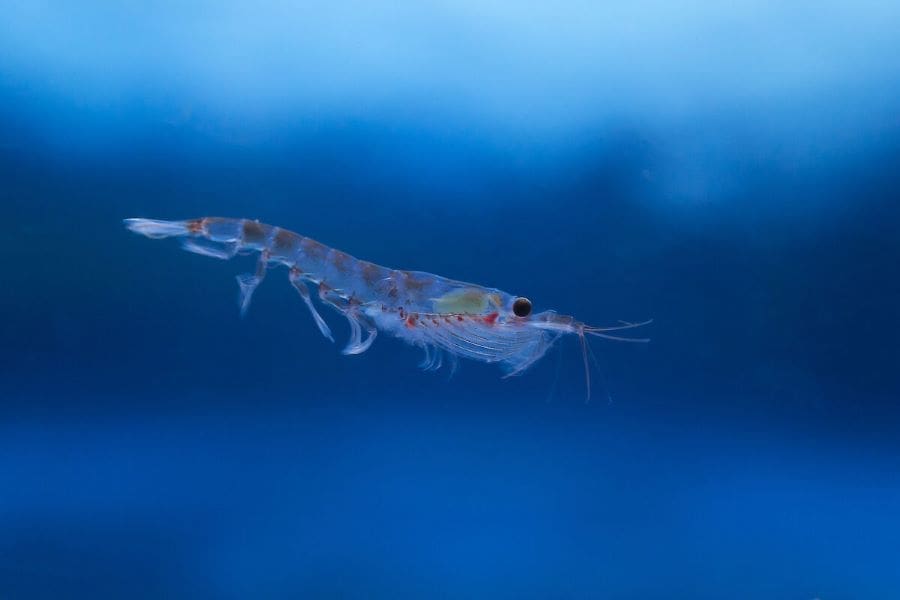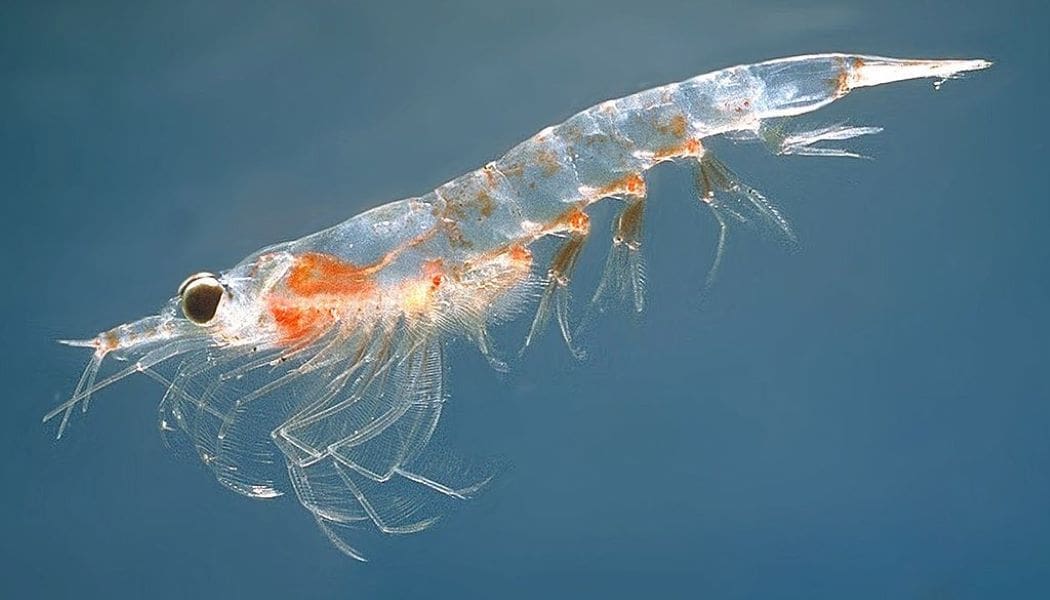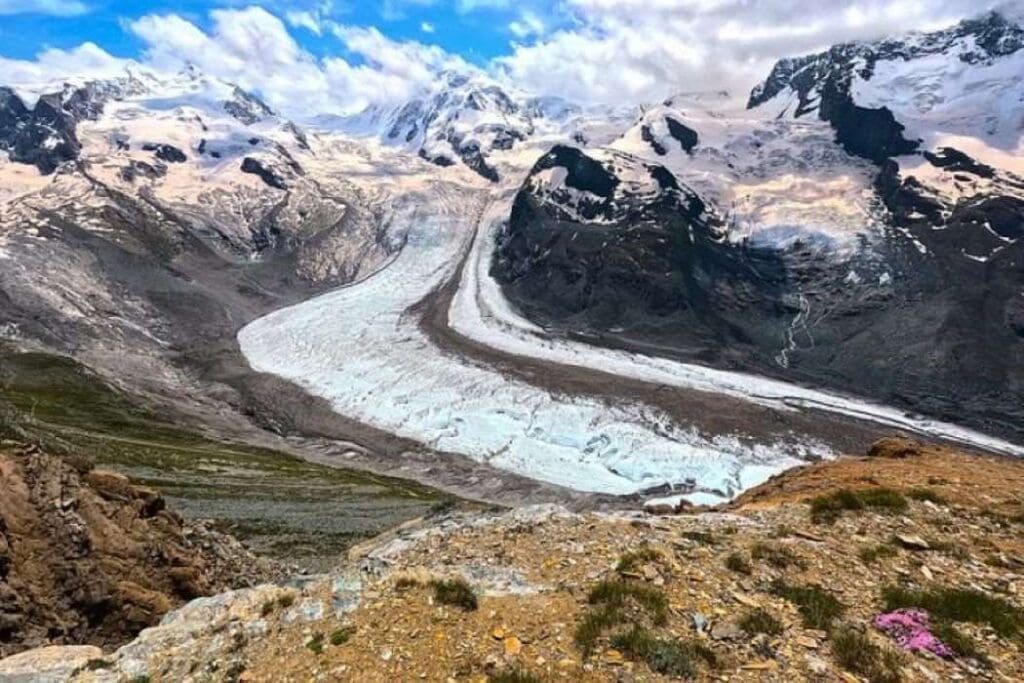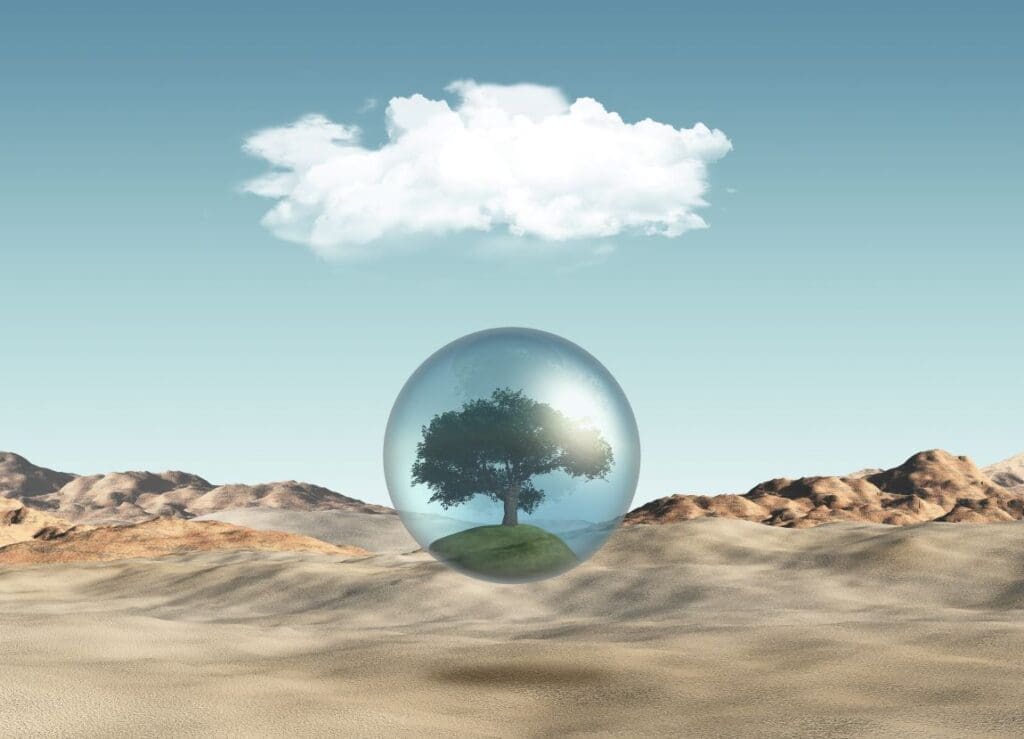Researchers are investigating whether Antarctic krill, a cornerstone of the Southern Ocean ecosystem, can be monitored from space to better protect their populations from climate change and industrial fishing pressures.
The Krill from Space project, a collaboration between the University of Strathclyde, WWF, and the British Antarctic Survey (BAS), aims to track krill populations using satellite and remote sensing data. Launched at UNFCCC COP 29 in Baku in November 2024, the initiative compares light patterns to identify krill distribution over time.
Vital creatures
Krill play a crucial role in marine ecosystems, serving as a primary food source for whales, penguins, and seals. They also contribute to carbon sequestration, transferring an estimated 0.3 million tonnes of carbon to the deep ocean daily — roughly equivalent to the UK’s daily CO2 emissions. However, rising sea temperatures and habitat loss, along with expanding industrial fishing, threaten their populations.

Dr. Cait McCarry from the University of Strathclyde’s Department of Physics recently returned from Antarctica, where she collected live krill to aid in refining the monitoring technique. Dr. David McKee, a researcher in the same department, noted that ocean color satellites have observed global waters since 1997, but only recently have scientists been able to detect a distinct signal from the pigment that gives krill their red hue.
“This is a ground-breaking effort to develop a new way to monitor krill swarms at the surface, where they are known to occur in huge patches that are important feeding grounds for whales and other important marine species,” said McKee. “In time, we hope to be able to support international conservation and sustainable management of this most important Antarctic species.”
Feeding grounds
WWF-UK’s chief polar advisor, Rod Downie, emphasized the need for action: “Antarctic Krill are the Superheroes of the Southern Ocean. These tiny, unsung heroes are the beating heart of the Southern Ocean, sustaining incredible marine life. They are the reason why humpback whales migrate thousands of miles every year to feed in the icy waters around Antarctica. And they are climate heroes too, playing a critical role in drawing down carbon from the ocean surface.
“But climate change and unsustainable fishing are putting them at risk. With sea ice declining and industrial fishing growing, we urgently need to better manage the fishery and protect krill habitats within a network of marine protected areas. ‘Krill from Space’ may give us a new tool to help monitor and safeguard this vital species.”
As krill populations shift further south due to warming waters and declining sea ice, scientists hope that satellite monitoring will provide crucial data for conservation efforts. Protecting krill is essential not only for biodiversity but also for maintaining climate stability.
Article Source:
Press Release/Material by University of Strathclyde
Featured image: A Northern krill (Meganyctiphanes norvegica). Credit: Øystein Paulsen | CC BY-SA 3.0




